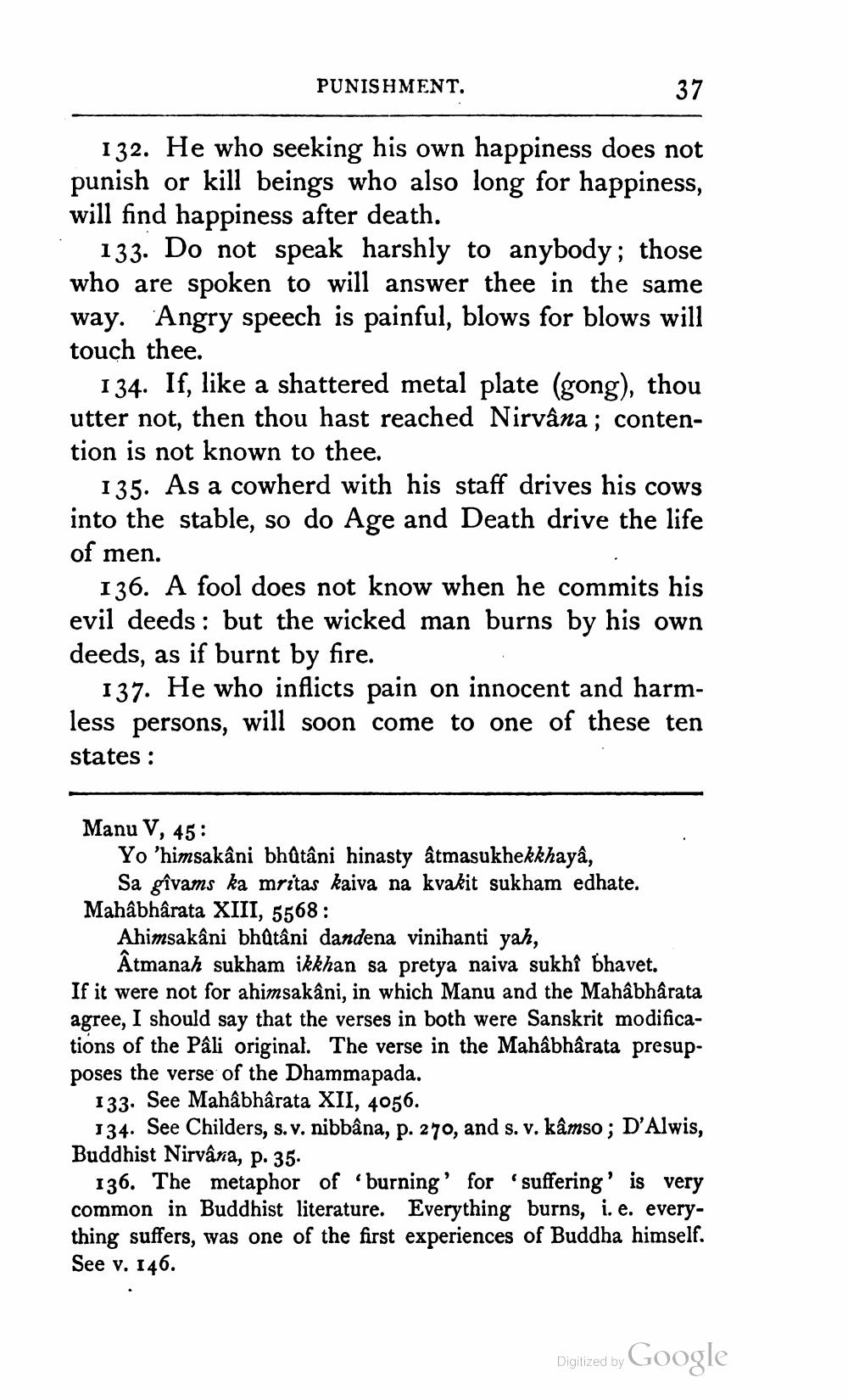________________
PUNISHMENT.
37
132. He who seeking his own happiness does not punish or kill beings who also long for happiness, will find happiness after death.
133. Do not speak harshly to anybody; those who are spoken to will answer thee in the same way. Angry speech is painful, blows for blows will touch thee.
134. If, like a shattered metal plate (gong), thou utter not, then thou hast reached Nirvana; contention is not known to thee.
135. As a cowherd with his staff drives his cows into the stable, so do Age and Death drive the life of men.
136. A fool does not know when he commits his evil deeds : but the wicked man burns by his own deeds, as if burnt by fire.
137. He who inflicts pain on innocent and harmless persons, will soon come to one of these ten states :
Manu V, 45:
Yo 'himsakâni bhùtâni hinasty âtmasukhekkhayâ,
Sa gîvams ka mritas kaiva na kvakit sukham edhate. Mahâbhârata XIII, 5568:
Ahimsakâni bhûtâni dandena vinihanti yah,
Atmanah sukham ikkhan sa pretya naiva sukhî Øhavet. If it were not for ahimsakâni, in which Manu and the Mahâbhârata agree, I should say that the verses in both were Sanskrit modifications of the Pâli original. The verse in the Mahâbhârata presupposes the verse of the Dhammapada.
133. See Mahâbhârata XII, 4056.
134. See Childers, s.v. nibbâna, p. 270, and s. v. kâmso; D'Alwis, Buddhist Nirvâna, p. 35.
136. The metaphor of burning' for suffering' is very common in Buddhist literature. Everything burns, i.e. everything suffers, was one of the first experiences of Buddha himself. See v. 146.
Digitized by Google




